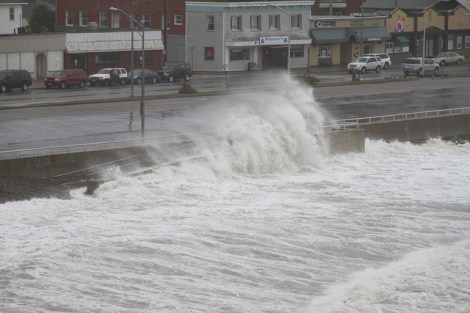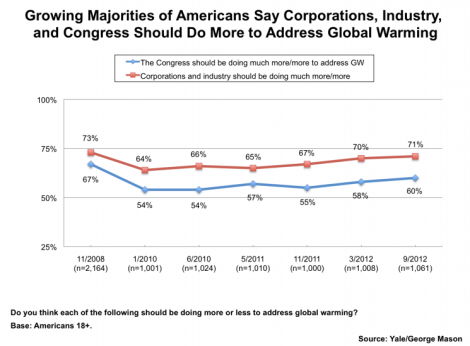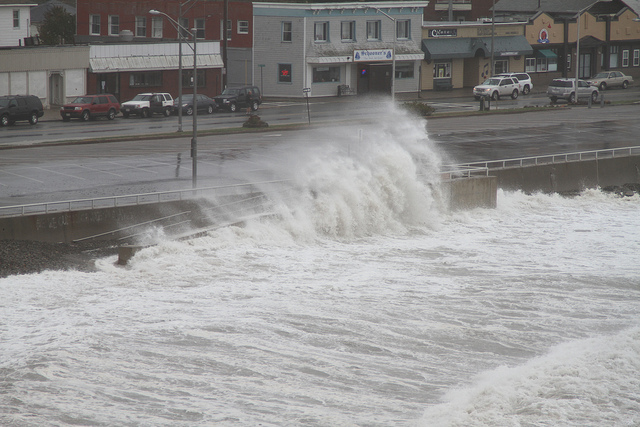2012 has been, to date, the hottest year on record. Again, we must note: This record is almost certainly only temporary. Do not read this fact and then spend the next three decades telling everyone about how 2012 was the hottest year ever; by then, it will probably rank somewhere around 30th.
Entirely coincidentally, it has also been one of the most disastrous.
With about six weeks remaining in the year, there have already been 11 natural disasters that have cost $1 billion or more in damage, bringing 2012 to second place on the list of top billion-dollar disaster years. The current record-holder is 2011, when there were 14 billion-dollar disasters. The widespread and intense drought — which as of Nov. 6 still covered at least 60 percent of the lower 48 states — and Hurricane Sandy are expected to go down in history as two of the most costly weather-related disasters since 1980. …
The statistics for this year so far are preliminary, and come from news accounts and insurance industry estimates. The National Oceanic and Atmospheric Administration (NOAA), which issues the official numbers, has opted to only release the final figures when they are available, rather than keep a running tally as they have done in previous years.
Probably to avoid spreading panic.

Jeff CutlerSandy would appreciate it if you paid attention to her, Congress.
Meanwhile, Yale did its regular survey asking if people want action on climate change [PDF] which showed that people want action on climate change. Some toplines:
- Nearly all Americans (92%) say the president and the Congress should make developing sources of clean energy a “very high” (31%), “high” (38%), or “medium” priority (23%). Very few say it should be a low priority (8%).
- A large majority (77%) say global warming should be a “very high” (18%), “high” (25%), or “medium” priority (34%) for the president and Congress. One in four (23%) say it should be a low priority.
- Six in ten Americans (61%) say the U.S. should reduce its own greenhouse gas emissions regardless of what other countries do.
- A large majority of Americans (88%) say the U.S. should make an effort to reduce global warming, even if it has economic costs.
“Oh yeah?” a bunch of politicians said as their staff put the report in a giant pile on top of a filing cabinet in a back room somewhere. “You don’t say?”
Part of the problem is that these data don’t change much over time. Here’s the report’s graph suggesting that support for action is increasing.

Yale Project on Climate Change CommunicationClick to embiggen.
It is! Just not very much at all. Which means that there’s little incentive for politicians to take action: You don’t wonder about the constant, annoying droning sound until it suddenly changes. It’s worth noting that the Yale survey was completed pre-Sandy, so it’s safe to assume that those numbers will be higher next month, at which point that pile in that politician’s back room will grow yet another two centimeters.
(Incidentally, support for the topic du jour, a carbon tax, is limping along at 39 percent — compared to 54 percent opposed.)
So the hottest year-to-date in history coincides with one of the most costly in terms of disaster which coincides with broad, constant support for addressing climate change.
What, exactly, is Congress waiting for?*
This post is part of our November 2012 theme: Post-election hangover — whither the climate?




